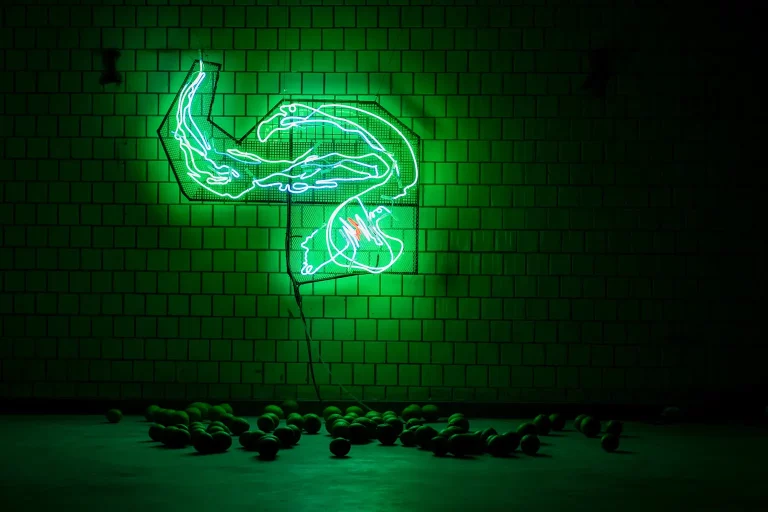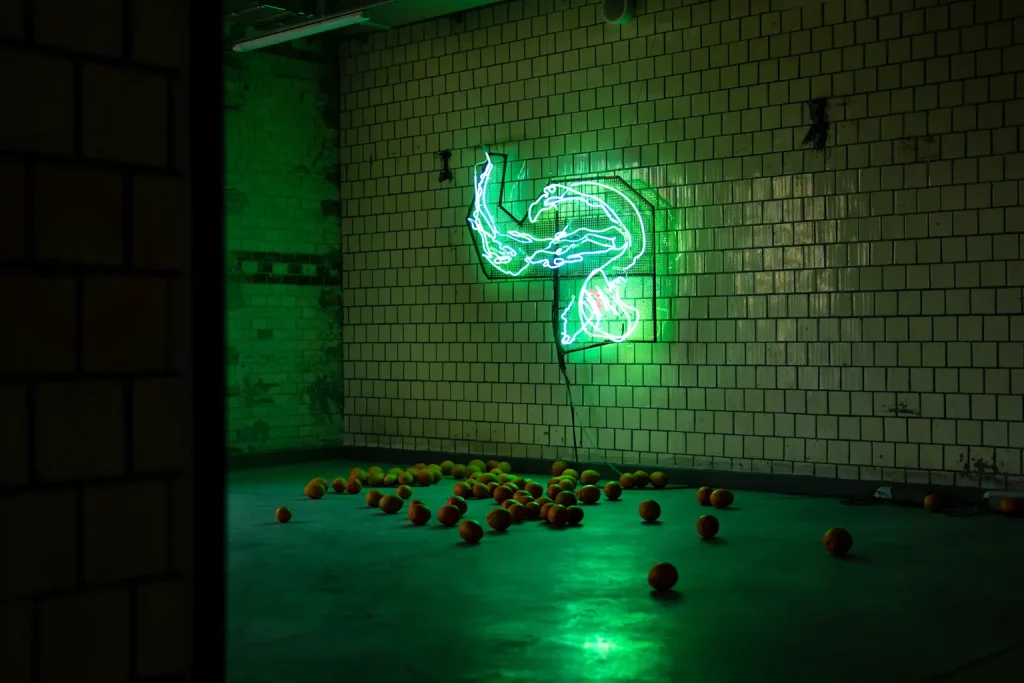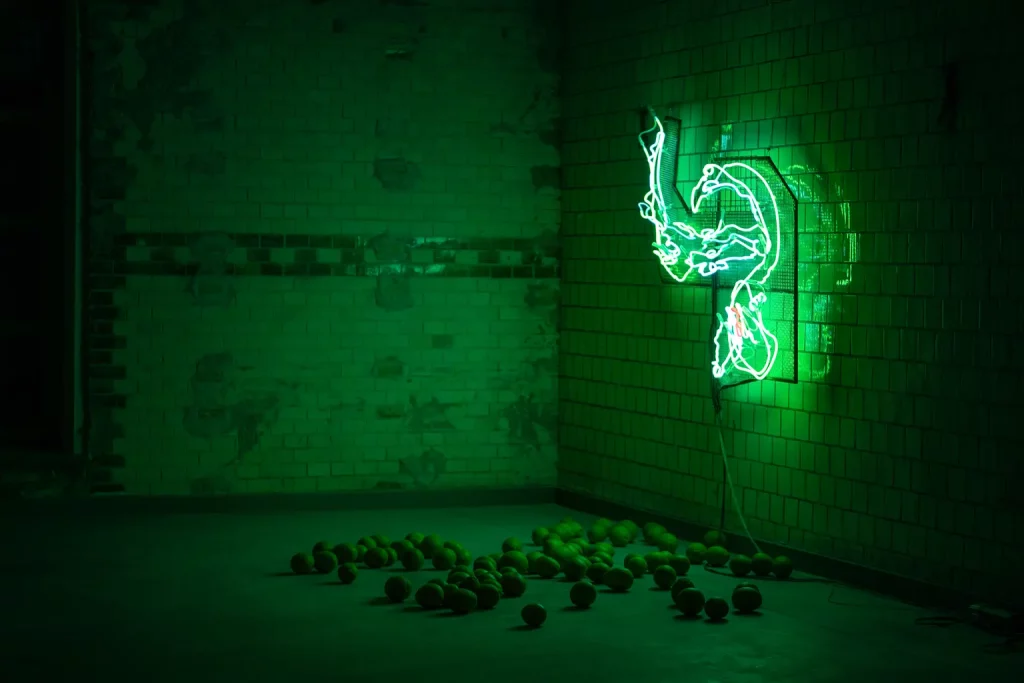CROCODILES & ORANGES
INTERACTION | NEON: 120 X 160 CM | ORANGES | 2020
Over time, objects become memories. Sometimes memories are materialized. My self is not the same as yours. They are different from us. They don’t see it like we do. On a wooden tabletop, next to a gas stove, stood a white porcelain bowl with oranges. Grandfather brought them in the morning from the market. After lunch he peeled them, split them into pieces, offered them to us. Even though at that time there was no longer any problem buying them, they were still a symbol. A symbol of prosperity and love. The smell of oranges alters space. It can awaken you for a moment, stretch out the unit of time, a second. I am no longer an orange, I’m a crocodile. The kitchen is gone. Now there’s a room there. And grandfather is gone. And grandmother too. Sometimes I’m awakened by the smell of oranges that I step on as I walk.
Agnes Jaworek
When we speak of memory and recollections, we often mean primarily narratives and images. We watch photos from the past and spin yarns based on them. But memory has other dimensions too – it is rooted in our body, and memories may return under the influence of a sensual stimulus at an entirely unexpected moment. Cretien van Campen called the senses “the doorways to lost memories”. Tastes and smells are particularly powerful as vectors of memory. Before a child is capable of translating his experiences into a language narrative, his first memories are sensual in their character. This is why tastes and smells so often transport us precisely to our childhood. This peculiar experience, called “the Proust effect”, involves a sort of reliving of a moment from the past. This kind of experience is nothing mundane, it is exceptional and very often moving, just the way it was with the famous Proustian madeleine. Under the influence of a smell or a taste, the past is for a moment actualized in the present, time stands still and everything returns – places, people, emotions. Memories of this sort are entirely subjective, idiosyncratic, unique. What is common for these experiences, however, is the fact that each of us has a smell or a taste that activates an entire chain of memories and feelings. What is more, while the memories themselves are individual and exceptional, they may sometimes be shared precisely due to affordance of specific tastes or smells.
Let us take oranges as an example – today available everywhere, but once considered almost a luxury good. The import of citrus fruit by the authorities of socialist Poland during Christmas period means that for many people this fruit brings up associations with particular emotions. At the same time, the import made visible the political entanglement of this product, which has become entirely ordinary today. This lets us realise how a simple object is enmeshed in a whole web of meanings and dependencies: economic, political, emotional, or symbolic.
“The Proust effect” is frequently connected with the experience of nostalgia – underdefined, ineffable longing for the mythical land of childhood. But this phenomenon is retrotopian. This is a longing for an idealised world that was lost, even though it had never really existed.
Text: Agata Stronciwilk




